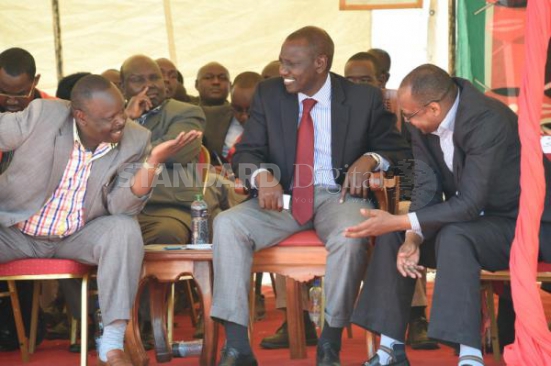×
The Standard e-Paper
Smart Minds Choose Us

Latest political moves by Bomet Governor Isaac Ruto and a section of United Republican Party (URP) leaders point to a well orchestrated scheme to wrestle the South Rift region from Deputy President William Ruto’s grip.
Before last week’s announcement that he is shopping for a political party, Governor Ruto had been traversing Narok, Bomet, Kericho and Narok counties, mostly occupied by the populous Kipsigis community, to the chagrin of his political opponents.